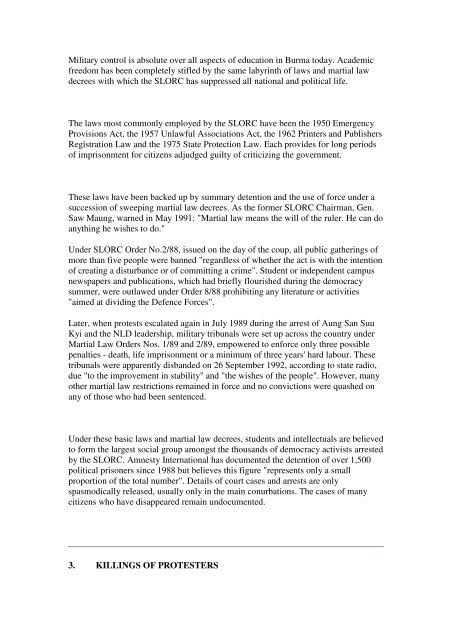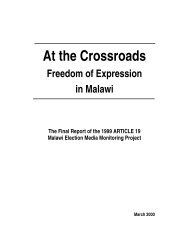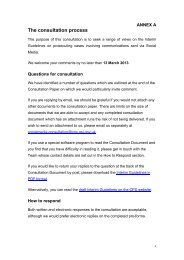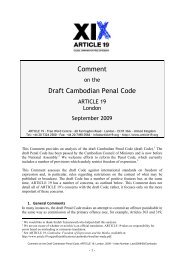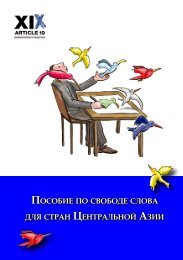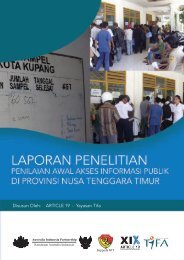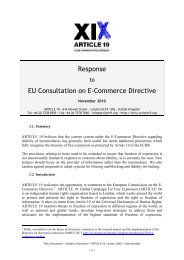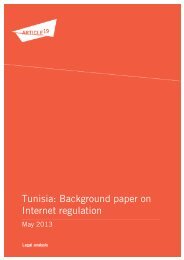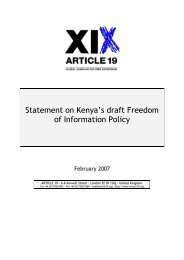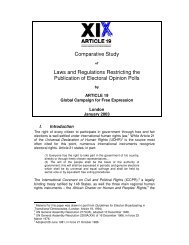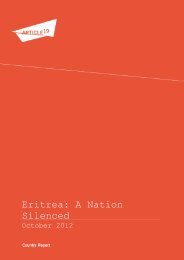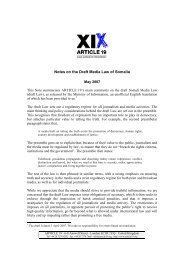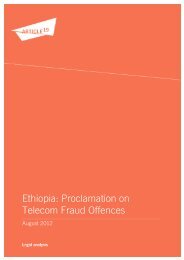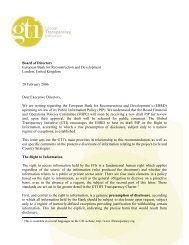"OUR HEADS ARE BLOODY BUT UNBOWED ... - Article 19
"OUR HEADS ARE BLOODY BUT UNBOWED ... - Article 19
"OUR HEADS ARE BLOODY BUT UNBOWED ... - Article 19
You also want an ePaper? Increase the reach of your titles
YUMPU automatically turns print PDFs into web optimized ePapers that Google loves.
Military control is absolute over all aspects of education in Burma today. Academicfreedom has been completely stifled by the same labyrinth of laws and martial lawdecrees with which the SLORC has suppressed all national and political life.The laws most commonly employed by the SLORC have been the <strong>19</strong>50 EmergencyProvisions Act, the <strong>19</strong>57 Unlawful Associations Act, the <strong>19</strong>62 Printers and PublishersRegistration Law and the <strong>19</strong>75 State Protection Law. Each provides for long periodsof imprisonment for citizens adjudged guilty of criticizing the government.These laws have been backed up by summary detention and the use of force under asuccession of sweeping martial law decrees. As the former SLORC Chairman, Gen.Saw Maung, warned in May <strong>19</strong>91: "Martial law means the will of the ruler. He can doanything he wishes to do."Under SLORC Order No.2/88, issued on the day of the coup, all public gatherings ofmore than five people were banned "regardless of whether the act is with the intentionof creating a disturbance or of committing a crime". Student or independent campusnewspapers and publications, which had briefly flourished during the democracysummer, were outlawed under Order 8/88 prohibiting any literature or activities"aimed at dividing the Defence Forces".Later, when protests escalated again in July <strong>19</strong>89 during the arrest of Aung San SuuKyi and the NLD leadership, military tribunals were set up across the country underMartial Law Orders Nos. 1/89 and 2/89, empowered to enforce only three possiblepenalties - death, life imprisonment or a minimum of three years' hard labour. Thesetribunals were apparently disbanded on 26 September <strong>19</strong>92, according to state radio,due "to the improvement in stability" and "the wishes of the people". However, manyother martial law restrictions remained in force and no convictions were quashed onany of those who had been sentenced.Under these basic laws and martial law decrees, students and intellectuals are believedto form the largest social group amongst the thousands of democracy activists arrestedby the SLORC. Amnesty International has documented the detention of over 1,500political prisoners since <strong>19</strong>88 but believes this figure "represents only a smallproportion of the total number". Details of court cases and arrests are onlyspasmodically released, usually only in the main conurbations. The cases of manycitizens who have disappeared remain undocumented.3. KILLINGS OF PROTESTERS


